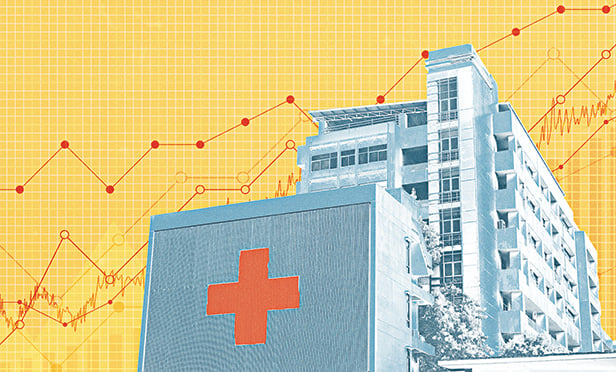 Twenty nine of 30 states who had projections for fiscal year 2021 anticipated total Medicaid spending would continue to increase over the previous year's numbers, thanks to rising enrollment.
Twenty nine of 30 states who had projections for fiscal year 2021 anticipated total Medicaid spending would continue to increase over the previous year's numbers, thanks to rising enrollment.
A few short months ago, buoyed by a robust economy, U.S. states anticipated little to no growth in Medicaid spending.
But that changed around March, when public efforts to stem the spread of COVID-19 led businesses, municipalities, states and entire countries to cut jobs and halt key revenue-generating operations. Now, officials say health care and public finances are about to collide in a way no one anticipated at the start of the year.
"The coronavirus pandemic has generated both a public health crisis and an economic crisis, with major implications for Medicaid, a counter-cyclical program," according to Kaiser Family Foundation and Health Management Associates, which sent a rapid survey to Medicaid directors in all 50 states and the District of Columbia. "During economic downturns, more people enroll in Medicaid, increasing program spending at the same time state tax revenues may be falling."
Thirty-eight states responded to the survey. Some were still in the process of analyzing the impact of coronavirus at the time of the survey, and had not completed enrollment and spending projections for fiscal years 2020 and 2021.
But one thing was clear: Nearly all states that had updated projections anticipated spikes beyond their pre-pandemic estimates, come July 1, the start of the new fiscal year.
Twenty nine of the 30 states that had projections for fiscal year 2021 anticipated total Medicaid spending would continue to increase over the previous year's numbers, thanks to rising enrollment.
|Unemployment factor
Medicaid enrollment and spending grow during economic downturns, Kaiser Family Foundation and Health Management Associates reported.
That paints a bleak picture for the year ahead.
The groups cited public data showing the U.S. economy lost 20.5 million jobs, as unemployment increased to 14.7 percent during the pandemic. They pointed to Congressional Budget Office estimates that predict the unemployment rate will average 15 percent during the second and third quarters of 2020, up from less than 4 percent in the first quarter. Those numbers will likely drop next year, but unemployment will still hover around 9.5 percent by the end of 2021 –about 6 percentage points higher than January 2020, according to the budget office's statistics.
Meanwhile, Americans who lost jobs between March 1 and May 2, 2020, would have likely used their unemployment insurance benefits insurance benefits, Congressional Budget Office data show.
What this means is that nearly 17 million people could be newly eligible for Medicaid, and about 6 million for marketplace subsidies, if they remain unemployed, according to Kaiser Family Foundation projections.
This prompted the Congressional Budget Office to write a letter to the chair of the House Budget Committee, to say that without further funding from the federal government, states would need to increase taxes or reduce spending–both of which would reduce spending and cause more job losses.
To offset this, some states plan to take steps to "put upward pressure on spending and potentially offset expenditure reductions due to decreased utilization." They propose waiving copayments and prior authorization requirements, allowing early pharmacy refills, expanded telehealth services and reimbursement rates, and increasing provider rates, especially for hospitals, nursing facilities, and other long-term services providers, according to the survey findings.
Samantha Joseph is a litigation editor in the global newsroom of BenefitsPRO parent company ALM. Contact: [email protected]. On Twitter: @SjosephWriter
Complete your profile to continue reading and get FREE access to BenefitsPRO, part of your ALM digital membership.
Your access to unlimited BenefitsPRO content isn’t changing.
Once you are an ALM digital member, you’ll receive:
- Breaking benefits news and analysis, on-site and via our newsletters and custom alerts
- Educational webcasts, white papers, and ebooks from industry thought leaders
- Critical converage of the property casualty insurance and financial advisory markets on our other ALM sites, PropertyCasualty360 and ThinkAdvisor
Already have an account? Sign In Now
© 2024 ALM Global, LLC, All Rights Reserved. Request academic re-use from www.copyright.com. All other uses, submit a request to [email protected]. For more information visit Asset & Logo Licensing.








